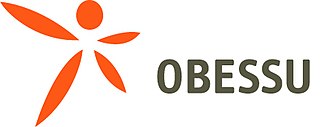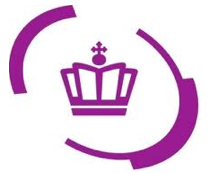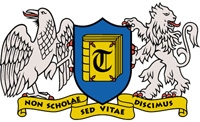
The Council of Europe is an international organisation with the goal of upholding human rights, democracy and the rule of law in Europe. Founded in 1949, it is Europe's oldest intergovernmental organisation, representing 46 member states, with a population of approximately 675 million as of 2023; it operates with an annual budget of approximately 500 million euros.
A students' union or student union, is a student organization present in many colleges, universities, and high schools. In higher education, the students' union is often accorded its own building on the campus, dedicated to social, organizational activities, representation, and academic support of the membership.

A student council is an administrative organization of students in different educational institutes ranging from elementary schools to universities and research organizations around the world. These councils exist in most public and private K-12 school systems in different countries. Many universities, both private and public, have a student council as an apex body of all their students' organisations. Student councils often serve to engage students in learning about democracy and leadership, as originally espoused by John Dewey in Democracy and Education (1917).

The Organising Bureau of European School Student Unions (OBESSU) is the umbrella organization of 36 national school student unions from 24 European countries. An interlocutor with the European Commission, European Parliament, Council of Europe and UNESCO, OBESSU is a full member of the Lifelong Learning Platform (LLLP) and the European Youth Forum (YFJ), and an associate member of the European Students' Union.

The European Union of Jewish Students (EUJS) is a Jewish, Zionist, pluralistic, inclusive and non-partisan umbrella organisation. EUJS supports Jewish student unions throughout Europe and represents its members to European institutions, the OSCE, the UNHRC, as well as to other major Jewish and non-Jewish organisations. Founded in 1978, EUJS currently has 36 member organisations, spanning from Russia to Scandinavia to the United Kingdom. EUJS is led by a President, an Executive Director, a Treasurer and seven Board Members who are elected by EUJS member organizations at the EUJS General Assembly every two years. The EUJS headquarters are located in Brussels, Belgium.
Education in Armenia is held in particular esteem in Armenian culture. Education developed the fastest out of the social services, while health and welfare services attempted to maintain the basic state-planned structure of the Soviet era, following Armenia's independence in 1991. Today, Armenia is trying to implement a new vision for its higher education system while pursuing the goals of the European Higher Education Area. The Ministry of Education and Science oversees education in the country.

The three Baltic countries, or the Baltic states – Estonia, Latvia, and Lithuania – are held to have continued as independent states under international law while under Soviet occupation from 1940 to 1991, as well as during the German occupation in 1941–1944/1945. The prevailing opinion accepts the Baltic thesis that the Soviet occupation was illegal, and all actions of the Soviet Union related to the occupation are regarded as contrary to international law in general and to the bilateral treaties between the USSR and the three Baltic countries in particular.

The Riga Graduate School of Law in Riga, Latvia is an autonomous law school in the Baltic region offering Bachelor, Master and Doctoral studies. It was established in 1998 through an international agreement between the Governments of Sweden and Latvia and the Soros Foundation.
Higher education in Ukraine operates several levels, all of which are regulated by the Ministry of Education and Science of Ukraine. In early 2016, Ukraine had 802 universities, but the Ministry intends to lower that number to 317. Ukraine had 1,586,700 higher education students in 2016-17.

The Commission for Academic Accreditation (CAA) is the national quality assurance and regulatory agency responsible for evaluation and accreditation of higher educational institutions and universities in the United Arab Emirates. Established in 2000, it comes under the country's Ministry of Education.

The National Union of Israeli Students has been the representative body of students' throughout Israel since 1934. Today NUIS represents over 300,000 students in over 64 Universities and Colleges. The Student Union is determined to play a decisive role in Israeli Society and it has placed social impact on a national level as an organizational priority. The Student Union believes that beyond their role of acquiring knowledge, students have the ability and responsibility to build and shape the society they live in and make a considerable impact in the long term.
Higher education accreditation is a type of quality assurance process under which services and operations of post-secondary educational institutions or programs are evaluated to determine if applicable standards are met. If standards are met, accredited status is granted by the agency.

The Danish Accreditation Institution was established by Danish law as an independent institution in 2007. The institution consists of two entities; the Accreditation Council, which serves as the decision-making authority, and Accreditation Institution, which serves as the accreditation operator. The Council makes decisions on the accreditation of all higher education study programmes in Denmark, both new and existing.
A student bill of rights is a document that outlines beliefs or regulations regarding student rights, typically adopted by a student group, school, or government. These documents can be policies, laws, or statements of belief.

The Russian language in Latvia is spoken by a significant minority. According to the External Migration Survey in 2017, it was the native language of 36% of the population, whereas 25.4% of the population were ethnic Russians.

Turība University is the largest business school in Latvia. The university was established in 1993. It has three branches located in Liepāja, Cēsis, and Talsi.
The Akkrediterungs-, Certifizierungs- und Qualitätssicherungs-Institut (ACQUIN) is a school accreditation system founded in the year 2001 as a consequence of the European Bologna process and the upcoming need for assuring the quality of newly introduced undergraduate and postgraduate degrees in Germany. ACQUIN is a member-based, non-profit organisation located in Bayreuth, Bavaria, Germany. The Institute operates under the licence of the German Accreditation Council and is thus empowered to award its quality seal to study programs which have successfully undergone accreditation. ACQUIN was reaccredited by the German Accreditation Council until 30 September 2011. ACQUIN operates internationally in several key regions, including the German-speaking European region, Middle and Eastern Europe and North Africa - Near and Middle East. Nowadays ACQUIN is an association of over 100 higher education institutions from Germany, Austria, Switzerland, Hungary and the United States of America. ACQUIN operates as a non-profit organisation which is financed through membership fees as well as through Higher Education Institutions for accreditation services provided.

The European Schools is an intergovernmental organisation, which has established, financed, and administered a small group of multilingual international schools, bearing the title "European School", which exist primarily to offer an education to the children of European Union (EU) staff; offers accreditation to other schools, bearing the title "Accredited European School", under national jurisdiction within EU member states to provide its curriculum; and oversees the provision of the secondary school leaving diploma, the European Baccalaureate.












